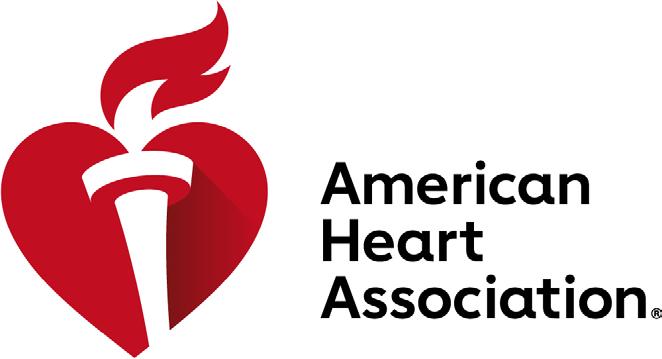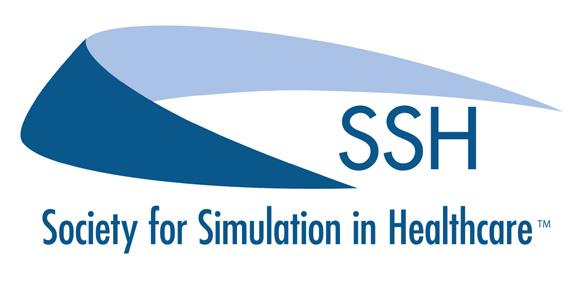
















AMERICA’S SECOND LARGEST CHILDREN’S HOSPITAL*
Committed to quality and safety
Provided more than $259 MILLION IN CHARITY CARE and community benefit services annually***
The Research Institute at Nationwide Children’s Hospital is ranked AMONG THE TOP 10 NIH-funded freestanding pediatric research facilities in the U.S.
53,403 DONORS contributed more than $89.5 MILLION
BEST OF THE BEST
Once again listed on U.S News & World Report’s Best Children’s Hospital Honor Roll, a distinction awarded to only 10 children’s medical centers nationwide

AMERICA’S LARGEST NEONATAL NETWORK AND PROVIDER OF INPATIENT PEDIATRIC SURGERIES**
N amed one of AMERICA'S BEST EMPLOYERS BY FORBES

FOUR-TIME MAGNET designation for nursing excellence
* Most recent data from CHA-member pediatric hospitals based on number of staffed beds
**Most recent data from CHA-member pediatric hospitals, based on largest number of NICU beds and highest number of inpatient surgeries
***Based on 2021 information
Mission
To integrate agile and immersive simulation that leads to the best outcomes in pediatric health care.
Vision
By leading the way in simulation, we will empower health care teams, patients and families to reach their highest potential.
“Nationwide Children’s has an amazingly robust simulation program. Their staff has been instrumental in familiarizing the multidisciplinary teams with obstetrics and with new policies and procedures created in preparation for offering fetal intervention and special delivery services at Nationwide Children’s Hospital. I cannot imagine opening an inpatient Fetal Program, which is pioneering and advancing the field of fetal medicine, without the use of simulation.We will continue to utilize simulation for process validation, education, and assessment for many years to come.”
Lisa Miller MS, RN, C-EFM, Clinical Lead and Education Specialist
Cheryl.Camacho@NationwideChildrens.org

Tensing.Maa@NationwideChildrens.org
Daniel.Scherzer@NationwideChildrens.org
Karen.Diefenbach@NationwideChildrens.org


We are proud to share the Nationwide Children’s Simulation Program’s 2022 accomplishments with our hospital community through this annual report; 2022 was an impressive transition year for our program because it was the first year since we opened the new simulation center that we had the ability to provide unrestricted services. Until recently, we have not had an opportunity to discover the full potential of our new physical space and equipment. Subsequently, this year was one of tremendous growth beyond what was projected for our program during the planning of the new space. This was due partly to the increased efficiency that our new center brings to our team, the increased awareness across the institution of our services and new applications of simulation for supporting our health care system.

“Terrific experience! Casual. Valuable. Questions encouraged”
– Nurse ‘22
Let us share a few examples of our reach and simulation achievements:
• Education and training of next generation of pediatric health care providers. We saw 10,600 simulation learners in 2022.
• Expansion and strengthening of relationships with diverse service lines, including child life, home care, surgical services, hematology/oncology, ambulatory care and behavioral health.
• Promotion of interprofessional collaboration through multidisciplinary Level 1 trauma simulations.
• Growth of communication training through difficult conversation workshops and simulations for critical care, palliative care and hematologyoncology graduate medical education trainees.
• Application of a comprehensive proactive safety approach to risk assessment and mitigation for new surgical service lines: Maternal Fetal Medicine and Total Pancreatectomy with Islet Auto Transplantation (TPiAT).
• Integration of QI interventions aimed at decreasing unplanned extubation and CLABSI.
• Development of new simulation champions across the hospital through debriefing workshops.
• First year launch of bronchoscopy and foreign body removal training for the Pediatric Surgery Department.
• Launch of Minimally Invasive Surgery (MIS) training sessions for fellows on duodenal atresia.
• Supporting impactful research in:
o Improved skill retention and behavior change after Standard vs. Repetitive simulation (NICU)
o Multicenter cardiac arrest team leader communication training (ED)
o Virtual reality for situational awareness and de-escalation of aggressive patients (BHP)
o Innovative and inclusive education via screen-based virtual simulation for teaching affirmative care practices for LGBTQIA+ patients (PICU)
o Provide ImPACTS (Improving Pediatric Acute Care Through Simulation) to regional emergency department hospitals to evaluate facility and staff readiness for pediatric emergencies through immersive simulated scenarios.
We were fortunate to welcome new simulation team members who share our commitment to remain agile, innovative and collaborative in our quest for best outcomes for our patients. We are grateful for our successes in 2022 and look forward to 2023 and the impact we can bring.
Behind the scenes at the Simulation and Outreach Education Center, many individuals contribute to the learning environment and success of the center. Some of the key positions are listed below. The center is also supported by administrative staff, content experts, physicians, instructors and technical staff.
EDUCATION SPECIALISTS/COORDINATOR Individual who supports health care professionals who are learning to manage clinical situations and provide care that is safe, effective, efficient, timely, patient-centered and equitable. May teach an individual learner or a group of learners to practice working as a team.
SIMULATION COORDINATOR Individual who is involved in the implementation and/or delivery of simulation activities. An individual who helps to bring about an outcome (such as learning, productivity or communication) by providing indirect or unobtrusive assistance, guidance or supervision.
SIMULATION TECHNICIAN — Individual with a diverse set of skills and expertise both technical and administrative related to the operation, support and delivery of healthcare simulation. An individual, also known as a “Sim Tech,” who functions as a technician for health care simulation technology. In addition to technical support, job duties may vary and include such duties as preparing for simulations (mannequin programming, set-up), running equipment during simulations (simulator, audiovisual), equipment maintenance/repair and education of others concerning simulation technologies.
SIMULATION OPERATION SPECIALIST — An individual whose primary role is the implementation and delivery of a simulation activity through the application of simulation technologies such as computers, audiovisual or networking technologies.
https://doi.org/10.23970/simulationv2.
Ashley
Ashley.Brophy@NationwideChildrens.org
Mary.Coles@NationwideChildrens.org





Thomas

Thomas.Heater@NationwideChildrens.org
Maranda



Charlotte “Char”
Nathan.Holmes@NationwideChildrens.org
Maranda.Ragland@NationwideChildrens.org
Charlotte.Rees@NationwideChildrens.org
Erica.Rey@NationwideChildrens.org
Luke.Vohsing@NationwideChildrens.org
Megan.Whittaker@NationwideChildrens.org


supports the hospital’s guiding principle to “Create a safe day every day.”
Accredited by the Society for Simulation in Healthcare, our Simulation Program provides opportunities for various medical professionals to practice technical skills, medical judgment and collaborative teamwork.


Inspired by the adoption of high-fidelity simulators at other academic medical centers, Nationwide Children’s started researching innovative ways to launch education within the organization. Our program started by adopting high-fidelity simulators into our Pediatric Advanced Life Support (PALS) program to obtain buy-in from not only learners but faculty.
In parallel to the curriculum developed in our Sim Center, we developed an in-situ program of mock codes that later evolved into the more formal Code Blue program at Nationwide Children’s in 2017.

The Sim Center was provided dedicated space in the main hospital that incorporated two hospital bays and a control room. Over the years we validated our existence and made a substantial impact on the organization. A business plan was created to build a brand new, dedicated simulation center.

Nationwide Children’s hired a new director with simulation expertise to complement our leadership team of three highly skilled medical directors with critical care and emergency medicine backgrounds.
Sim Center opens. In August, we moved into our brand-new simulation center. From here, we created new processes and structures around the education being delivered in addition to operational policies.



In the summer, we received Provisional Accreditation from the Society of Simulation in Healthcare. We took this feedback and made improvements and enhancements in our data collection and educational methodology. We were reorganized from being housed under the Education umbrella to being under the Center for Clinical Excellence and aligning our strategic plan in accordance with Quality and Safety.
During that time 2021-2022, we made a significant improvement by integrating into our organization in response to aiding in launching new programs and space.

The Sim Center obtained the Basic Life Support program under our list of courses to house all certifications in one department. As we continue to grow our programs and events we look forward to a record-breaking year, surpassing learner engagement and contact hours in addition to growth.
We have applied for full accreditation with Society for Simulation in Healthcare, which should be awarded in late 2023.
Simulation is crucial in our Maternal Fetal Medicine program, particularly for supporting our inpatient Fetal Surgery program. We have an annual simulation-based curriculum that enhances learning and quality improvement efforts. It covers a diverse range of fetal therapies, including advanced techniques like open fetal surgery. Comprehensive dry runs involving a multidisciplinary team are conducted before each surgical procedure to prioritize patient safety. This approach allows us to continually refine procedures, educate our staff and proactively address safety issues to enhance patient care.
The Simulation Team collaborates with clinical leaders and educators at the Behavioral Health Pavilion (BHP) to practice handling psychiatric and medical emergencies. While BHP clinicians are skilled in managing psychiatric emergencies, they have less experience with medical emergencies as those patients are usually transferred to the main campus. Our focus in simulation events is on rare but critical medical emergencies like anaphylaxis and choking, which could lead to cardiac arrest. To ensure preparedness, all nursing and support staff must participate in at least one medical simulation per year. Those in the Psychiatric Crisis Department are required to engage in two medical simulations annually to enhance their readiness for such scenarios.
Trauma Credentialing is an annual requirement for physicians treating trauma patients. A team of nurses and doctors engage in a trauma simulation, assessing and treating the patient. They focus on timely interventions, effective leadership and teamwork through clear communication. Learners have autonomy to make decisions based on the patient’s condition. During the debrief, strengths and areas for improvement in patient care, teamwork and communication are discussed. This experience enhances understanding of interdisciplinary collaboration in trauma patient care and decision-making processes.
The simulation team collaborates with the professional development team to prepare newly graduated nurses for patient care experiences. Simulations cover scenarios like code blue (medical assistance), code violet (violent/aggressive individuals), medication administration, trach care and crash cart reviews. Skills acquisition, teamwork, communication and interdisciplinary patient care are prioritized. The curriculum follows evidence-based practice guidelines for daily nursing practice. Simulation support is provided to the inpatient Fetal Surgery program through an annual curriculum focused on learning and quality improvement. The program includes diverse fetal therapies and ensures patient safety through comprehensive dry runs and multidisciplinary involvement. This approach helps evaluate and refine procedures, educate staff, and proactively address potential risks to enhance patient care.
The simulation team collaborates with many different departments across the organization to provide education to staff during annual skills days. We collaborate with unit-based educators to help them decide what methodology is best to meet learning objectives for their staff. These objectives often cover clinical competencies, emergency scenarios, wayfinding, patient assessment, teamwork and communication.
The Simulation Department at Nationwide Children’s oversees the AHA Training Center, providing certification courses like Basic Life Support (BLS) and Pediatric Advanced Life Support (PALS). These courses help the hospital comply with Human Resources policies and maintain The Joint Commission standards for resuscitation services. The department incorporates BLS and PALS elements into education initiatives, ensuring participants gain strong resuscitation skills. They also collaborate with unit-based educators and leadership to involve and train staff as BLS and PALS instructors.
Children with trachs have higher rates of morbidity and mortality making it important for both families and health care providers to have the opportunities to receive hands-on practice to master basic trach skills. Simulation offers a Trach Rolling Refresher Cart that allows for education to be rolled to the patient’s bedside, a conference room or anywhere that is convenient for families or staff to receive as many hands-on opportunities for training with basic trach skills as they would like, without causing harm to a real patient or child. Used in conjunction with validated trach skills checklists, families and caregivers can receive instant feedback to perfect their skills and build confidence. This cart is also great for Just-In-Time training for bedside staff that would like a quick refresher on skills. Simulation also offers immersive simulations of common emergencies that staff and family members can encounter in anywhere, allowing for the application of trach management in high-stress situations and the use of their critical thinking skills to provide interventions that lead to best outcomes.
The Nationwide Children’s Hospital Simulation Team collaborates with inpatient units to improve central line management and reduce central line bloodstream infections (CLABSI). Realistic simulation scenarios help identify and resolve deviations from current practices. Insights gained are shared with unit leadership to address knowledge and skill gaps. The team works closely with unit leaders to determine effective educational methods, including Just-In-Time training, rolling refreshers, CLABSI Bingo, CLABSI Passport and additional simulation scenario education. Subsequent simulations assess the effectiveness of the educational interventions.
The multidisciplinary ImPACTS team developed a pediatric improvement program for emergency departments. Its goal is to ensure that emergency providers and departments are prepared to provide timely, safe and effective pediatric care. ImPACTS promotes collaboration between regional pediatric centers and community partners. During training, the team brings equipment to conduct four pediatric simulations in the emergency department’s resuscitation bay.

“Simulation at Nationwide Children’s Hospital exists to promote safety and quality on the Journey to Best Outcomes by creating learning curricula and safe learning environments for staff to test new processes and enhance skills, including communication skills, amongst interdisciplinary teams and outside of touching patients. The impact of simulations with this team directly contributed to the safe start-up of two premier services at Nationwide Children’s in 2022, the Fetal Medicine Program and the Total Pancreatectomy with Islet Auto Transplantation) TPIAT program. Use of simulation during the planning stages for both programs, including use of a new Labor & Delivery Patient Simulator, definitively helped the clinical teams identify processes and communication pathways before Nationwide Children’s did our first cases. Nationwide Children’s is fortunate to have the expertise and dedication of our SIM team staff, under the leadership of director, Cheryl Camacho, and medical directors Tensing
The simulation center and simulation team at Nationwide Children’s are invaluable resources for teaching our trainees. From hands-on skills training for procedures to simulation curricula in the center focusing on (for example) deteriorating patients, communication skills, and breaking bad news to in-situ simulations to practice acute resuscitation skills, the simulation center offers a wide breadth of simulation resources. I feel privileged to work with this group of engaged, enthusiastic, organized and innovative people! I come to them every few months with an idea for a new session or curriculum and they “hit the ground running” with planning and coordination without batting an eye.
The Simulation Center is vital to our multi-disciplinary clinical team’s ability to learn, prepare and practice in a realistic and safe setting. In preparation for a recent fetal intervention, the entire fetal team from anesthesia to surgeons, to obstetricians to the front-line nursing staff were able to simulate anticipated processes and procedures as well as experience unexpected situations using high-fidelity equipment. Simulation in clinical teams results in more effective communication and coordination among the members of the team, which is key to ensuring safe and reliable outcomes for our patients in high-risk situations.
Claire Stewart MD, Pediatric Intensivist, Associate Program Director, Pediatric Critical Care Fellowship Program Lee Ann Wallace MBA, BSN, RN, NEA-BC, Senior Vice President Patient Care Services and Chief Nursing OfficerThe Fetal Center expansion at Nationwide Children’s Hospital introduced adult obstetric inpatients to a pediatric facility. To successfully add fetal intervention and Cesarean Section services for pregnant patients with complex babies, hands-on experience was crucial. Over five months, we conducted 27 interdisciplinary simulations with team members from various units, involving a total of 420 learners. In-situ simulation provided necessary training and process development. Based on debriefings, the team made changes to equipment, space design, communication, processes and medical management. The collaboration between the Fetal Unit and Simulation Program continues, focusing on maintaining clinical skills, developing new procedures and promoting teamwork.
Micky Johnson MHA, RNMS, RN, C-EFM Director, Fetal ServicesMaa, MD and DJ Scherzer, MD.”
Publications/Articles/Videos
Cicero MX, Scherzer D. Mass Shooting Drills Are Not the Best Shield for Our Hospitals or Our Children. Simul Healthc. 2022;17(6):355-356. doi:10.1097/SIH.0000000000000696
Iyer MS, Lo CB, Scherzer D, et al. The COVID-19 Elective for Pediatric Residents: Learning About Systems-Based Practice During a Pandemic. Cureus. 2021;13(2):e13085. Published 2021 Feb 2. doi:10.7759/cureus.13085
Perry MF, Melvin JE, Scherzer D, et al. The Diagnostic Error Index: A Quality Improvement Initiative to Identify and Measure Diagnostic Errors. J Pediatr. 2021;232:257-263. doi:10.1016/j.jpeds.2020.11.065
Abulebda K, Whitfill T, Scherzer D, et al. Improving Pediatric Readiness in General Emergency Departments: A Prospective Interventional Study. J Pediatr. 2021;230:230-237.e1. doi:10.1016/j.jpeds.2020.10.040
Chang TP, Elkin R, Boyle TP, Camacho C, et al. Characterizing preferred terms for geographically distant simulations: distance, remote and telesimulation. Int J Healthc Simul. 2022;1(3):55-65. doi:10.54531/dwti2869
Hunt EA, Duval-Arnould JM, Camacho C, et al. Integration of in-hospital cardiac arrest contextual curriculum into a basic life support course: a randomized, controlled simulation study. Resuscitation. 2017;114:127-132. doi:10.1016/j. resuscitation.2017.03.014
Calhoun AW, Gross IT, Maa T, et al. From Concept to Publication: Effectiveness of the International Network for Simulation-Based Pediatric Innovation, Research, and Education Project Development Process at Generating Simulation Scholarship. Simul Healthc. 2022;17(6):385-393. doi:10.1097/SIH.0000000000000628
Poeppelman RS, Coles MT, Heater T, Maa T, et al. Assessing Competence With a Task Trainer: Validity Evidence for Novel Tracheostomy Care Skills Assessment Tool. Simul Healthc. 2022;17(4):220-225. doi:10.1097/SIH.0000000000000597
Virtual and Augmented Reality Implicit Association Training (VARIAT-Sim), Maa, T. Mobile application published in Apple App and Google Play Stores. 2/2020.
Zann A, Harwayne-Gidansky I, Maa T. Incorporating Simulation Into Your Plan-Do-Study-Act Cycle. Pediatr Ann. 2021;50(1):e25-e31. doi:10.3928/19382359-20201213-01
Abulebda K, Srinivasan S, Maa T, Stormorken A, Chumpitazi CE. Development, Implementation, and Evaluation of a Faculty Development Workshop to Enhance Debriefing Skills Among Novice Facilitators. Cureus. 2020;12(2):e6942. Published 2020 Feb 10. doi:10.7759/cureus.6942
Iyer MS, Lo CB, Scherzer D, et al. The COVID-19 Elective for Pediatric Residents: Learning About Systems-Based Practice During a Pandemic. Cureus. 2021;13(2):e13085. Published 2021 Feb 2. doi:10.7759/cureus.13085
Perate A, Rodgers D, Scherzer D, et al. The Use of Simulation in Disaster Medicine Preparedness. 10.1007/978-3-030-72973-8_21.
How to use an EpiPen video http://www.nationwidechildrens.org/epipen https://www.youtube.com/watch?v=EN83hen4D-Y Written and Narrated by Scherzer DJ, November 2011. 1,824,898 views as of April 2023.
Pian TM, Maa T, Deutsch ES, Kishida M, Je S, Fortunov R, Harwayne-Gidansky I, Nishisaki A. PEAK-II: Multi-site simulations of acute respiratory decompensation to identify latent safety threats. Poster presentation at 14th International Pediatric Simulation Symposia and Workshops, June 2022, St. Petersburg, FL.
Srouji L, Hoffman A, Smith K, Stebler J, Casey FL, Maa T. A Virtual Reality ECMO Simulation Curriculum. Poster presentation at 14th International Pediatric Simulation Symposia and Workshops, June 2022, St. Petersburg, FL.
Wingert L, Stewart C, Pian T, Suttle MA, Maa T. Impact of Emotional Intelligence on Code Team Leadership. Poster presentation at 14th International Pediatric Simulation Symposia and Workshops, June 2022, St. Petersburg, FL.
Coles M, Camacho C, Howorka S, Maa T. Undercover Simulationist: Utilizing Simulation to Identify and Implement Educational needs. Oral presentation at 14th International Pediatric Simulation Symposia and Workshops, June 2022, St. Petersburg, FL.
Maa T. Pediatric Debriefing Faculty Workshop. Invited faculty and course planning committee presented at the Society for Pediatric Sedation; September 2022, virtual.
Maa T. Pro/Con – Tele simulation in Critical Care – Lessons Learned. Faculty and Concurrent Session Moderator presented at the 51st Critical Care Congress, Society of Critical Care Medicine (SCCM); February 2022, virtual.
Maa T. Using METRICS to Categorize Simulation Research Scholarship in Critical Care Medicine. Workshop Faculty, presented at the 51st Critical Care Congress, Society of Critical Care Medicine (SCCM); February 2022, virtual.
Maa T. SQUIRE-SIM: Reporting Guidelines for Quality Improvement Simulations Research Methods. Workshop Faculty presented at the International Meeting on Simulation in Healthcare Annual Conference; January 2022, cancelled due to COVID-19 restrictions.
Grants
PI: Tensing Maa
Project Title: Co-designing cultural humility with LGBTQ+ youth. Addressing provider biases and barriers to healthcare access
Goal of study: Train on culturally competent communication and skill development specific to LGBTQ+ adolescent and emerging adult populations.
Role: Project PI
Funding agency: Ohio Department of Medicaid, Centers of Medicare and Medicaid Services
Site total: $296,090
PI: Tensing Maa, Nationwide Children’s Hospital
Project Title: Safety VR: Virtual reality for behavioral health patient and employee safety
Funding agency: Ohio Department of Medicaid, Centers of Medicare and Medicaid Services
Site total: $43,200
PI: Kasper Lauridsen
Project Title: Standardized communication during in-hospital resuscitation (SCORE)
Goal of study: To investigate whether use of standardized communication can improve Chest Compression Fraction compared to closed-lop communication during simulated pediatric CPR. Multicenter, randomized, parallel group, single-blind, superiority, simulation study.
Role: Co-Investigator
PI: Tensing Maa and Akira Nishisaki
Project Title: Prevention of errors in acute conditions in kids (PEAK II)
Goal of study: Our objective is to perform a multicenter study of simulation respiratory failure in a pediatric patient in order to characterize the variability between institutions for management of respiratory failure in terms of 1) Time to achieve effective ventilation by applying bag-mask ventilation, performing suction and inserting oral or nasal airway, 2) Types of errors made in relation to bag-mask ventilation for respiratory failure management (in particular, bagmask ventilation). 4) Data regarding system, patient or staff safety issues related to respiratory failure that are discovered during the in-situ simulation
Role: MPI
“It was a great simulation and helped me grow confidence in my skills with the pediatric population. It was a safe learning environment, and the team was very knowledgeable.”
– Nurse ‘22





